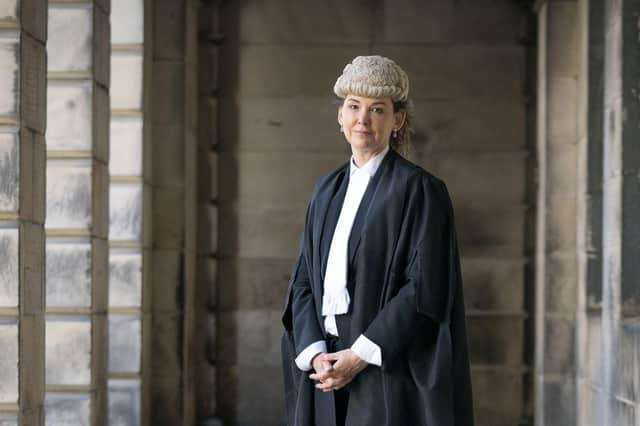Lord Advocate in legal bid to change rules on corroboration in rape cases


Scotland’s most senior law officer has urged a panel of seven judges to allow jurors to consider a rape victim’s distress as corroboration of the crime, in a move which could open the door to more prosecutions.
The Lord Advocate Dorothy Bain KC told the Court of Criminal Appeal on Thursday that existing practices in sex cases in Scotland were “out of step” with other countries from across the world.
Advertisement
Hide AdAdvertisement
Hide AdThe prosecutor said that it was wrong for Scottish jurors not to be allowed to consider that the distress shown by a rape victim was capable of corroborating the crime that allegedly occurred.
Legal experts believe that if the appeal court rules in favour of the Crown, Scottish prosecutors will be able to bring more considerably greater numbers rape prosecutions to court.
Currently jurors have to find another source of evidence which proves the crime took place. Such evidence can come in the form of forensic or eyewitness evidence.
Ms Bain says this is wrong and pointed to cases from England, Australia,, South Africa and Canada in which judges there have allowed jurors to use distress as a corroboration to rape.
She said: “The approach adopted in Scotland is different from the one taken in other jurisdictions. “The Commonwealth cases are relevant and provide assistance.
“The complainer’s state of distress independently observed can corroborate the complainer’s account of being raped.”
Ms Bain made her submissions to Scotland’s two most senior judges, the Lord Justice General Lord Carloway and the Lord Justice Clerk, Lady Dorrian. The two senior judges sat with their colleagues Lady Paton, Lady Wise, Lord Matthews, Lord Boyd of Duncansby and Lord Pentland.
Ms Bain came to court as a consequence of a ruling made by a judge who presided over a trial at the High Court in Aberdeen last year.
Advertisement
Hide AdAdvertisement
Hide AdThe judge in the case directed the jury that the woman’s distress could not of itself corroborate corroborate the crime but could confirm that she suffered some distressing event.
Ms Bain said that the nature of sexual assault and how it was committed meant that jurors should be allowed to consider the distress of the victim as being able to corroborate their account of being raped.
The Crown want the appeal court to find the judge in the Aberdeen trial erred in directing the jurors.
The Crown also want the court to find that independent evidence of distress is sufficient to corroborate a complainer’s evidence that penetration has taken place.
The case could have a significant impact on the prosecution of rape cases.
One lawyer, who didn’t want to be named, said: “You’ll see a greater number of cases coming to court which would have at one point been dropped by the Crown because there was an absence of things like forensic evidence which could be put before the jury.
“We could see juries consider more date rape cases where consent is the central issue and where there is an absence of physical assault or injury.”
The hearing continues.